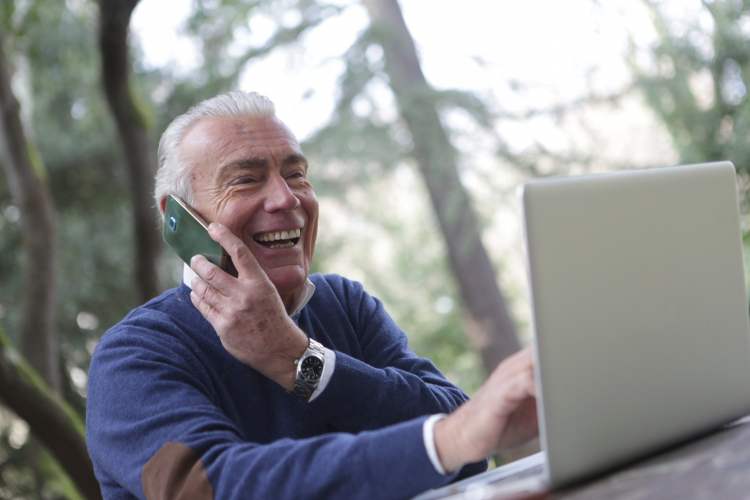Corona Diaries: Screensick

Dear Corona Diaries,
Call me an old man, but at the end of this virtual semester, I'm absolutely sick of being online. It feels more important than ever to be on top of this email, that text, this Teams call. None of it is new, but what is new is the intensity.
In my academic career, I've always been one to keep up with emails. I would usually check them once, twice a day and that would suffice to keep projects moving. That was considered consistent. Now, if I'm not checking my email every few hours, I'm bound to miss something important. I don't feel like I can ever fully step away.
Lately, that compulsion to keep up with everything constantly through my screen makes me resistant to them altogether. I worry that the new standard will stick, and even when we're back on campus, staying plugged in at all times will remain the norm.
Another reason this mode of working is getting to me is the impact on our bodies and minds. In my own experience, online classes and the work for them have made me more sedentary than ever, which is not something I personally enjoy.
Perhaps some find that they have extra time to move around, but it seems that a lot of students are glued to our desks and laptops. Additionally, the impact of talking through screens is not thoroughly researched.
One article I read recently mentioned the mirror neurons that help us to empathize with people when we talk to them, and the fact that we don't yet know if they work the same way over a video call. The small facial muscle movements that usually clue us in to others' emotions are lost in the quality of video calls, supporting the hypothesis that we don't empathize the same way through our screens.
Outside of my own experience, I am feeling for people I know who have more practical barriers to online classes and work. In more rural parts of my state, it is hard to access reliable wireless connections. I have heard from family members of people driving up the road to be on their class calls in a McDonald's parking lot to access a connection.
In the city, the stakes are flipped. Although I have not yet seen numbers on this, the rumor has been circulating that more ticketing on "non-essential" trips has been happening in cities.
If you cannot afford Wi-Fi at home, or only have access to a cheaper option with low bandwidth, then you, too, need to seek a connection elsewhere in order to participate. Yet, with fear circulating about incurring a fee you can't handle, the safest option may be to disconnect.
Regardless of where you live, laptops and smartphones are expensive. If there's one thing academic institutions have been relying on right now, it is that students have the technology to connect remotely. It seems unfair and inconsiderate of minimum-wage families to expect this, particularly when those same working parents are the "essential workers" putting their lives on the line.
I've heard many people talk about all the good lessons we've learned from being quarantined that we should take with us into our lives afterward. Cooking at home, valuing local businesses, and prioritizing essential forms of self-care are good lessons.
However, I don't think we should glorify this time. Being stuck at home right now is not a vacation, it is a responsibility for the safety of all.
When quarantine lifts, let's leave some things with it, like our incessant internet presence, being sedentary, and paying people we rely on less than a living wage.
Instead, let's learn alternatives from this quarantine - getting outside, connecting to nature, moving our bodies, and caring for our neighbors.
Best of luck out there,
Maddi

